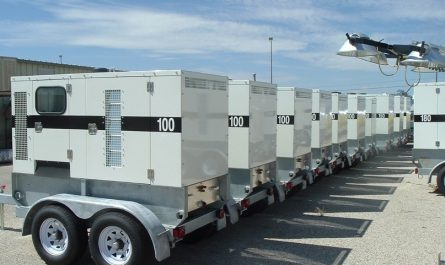Renewable Methanol: A sustainable alternative fuel for the future
What is Renewable Methanol?
Renewable methanol is methanol produced from non-petroleum, renewable resources like biomass, waste carbon and direct air capture of carbon dioxide. It provides a renewable, carbon-neutral alternative to methanol typically derived from natural gas.
Production Process of Renewable Methanol
Renewable methanol can be produced through various renewable pathways. The most common involve converting carbon dioxide (CO2) and hydrogen (H2) into methanol (CH3OH) using catalysts. The CO2 can come from various sources while the hydrogen is typically produced through electrolysis using renewable electricity.
One pathway uses biomass as a carbon source. Through gasification, biomass is converted into a synthesis gas (syngas) containing CO2 and H2. The syngas then undergoes further processing before being fed into methanol synthesis reactors. Another pathway sources CO2 emissions directly from industrial processes like steel manufacturing. The CO2 is combined with hydrogen split from water through electrolysis powered by renewable energy. A third innovative pathway uses direct air capture technology to pull CO2 directly from the atmosphere for methanol production.
These different methods provide flexible options to produce renewable methanol sustainably from various waste carbon streams or even ambient air. The process is quite similar to traditional fossil-based methanol production, utilizing the same mature industrial infrastructure and process technology. This allows renewable methanol to be a drop-in replacement for gray methanol with no changes needed to transportation or end-use applications.
Applications and Uses of Renewable Methanol
Like fossil-derived methanol, renewable methanol has useful properties making it applicable in many sectors currently dependent on non-renewable feedstocks. It is a clear, colorless liquid that is miscible in water and organic solvents. With a high octane rating, it can be blended with gasoline or used directly in internal combustion engines and fuel cells.
Renewable methanol is being explored as marine fuel either in pure form or blended into bunker fuel. As a liquid at normal temperatures and pressures, it is well-suited to use in the shipping industry and avoids many challenges with gaseous fuels. Trials have proven it can replace marine gas/diesel oil with no modifications needed to engines or fuel systems. This offers a pathway to decarbonize the hard to abate marine sector.
The chemical industry also offers opportunities for renewable methanol usage. As a basic chemical building block, it can be converted into numerous other products like formaldehyde, methyl tert-butyl ether (MTBE), and dimethyl ether (DME). These end products see wide use in applications like plastics, adhesives, fabrics and more. Renewable methanol provides a sustainable alternative to non-renewable feedstocks traditionally used in chemical manufacturing.
Outlook for Growth of Renewable Methanol Market
Renewable methanol holds great promise as a carbon-neutral fuel and chemical feedstock that can leverage existing infrastructure and help various sectors transition away from fossil resources. However, renewable methanol production remains in early commercial stages today.
As renewable energy technologies mature and their costs decrease, pathways like biomass gasification and electrolytic hydrogen production should become increasingly economical. Carbon dioxide utilization and carbon capture technologies are also advancing rapidly. Government policies promoting renewable fuels and low-carbon solutions will further drive market expansion. Analysts project the renewable methanol market growing significantly in the coming decades, contributing meaningfully to emissions reductions across industries.
Widespread commercial availability of renewable methanol depends on continued technology improvements bringing costs down to parity with fossil alternatives. Establishing competitive renewable methanol value chains will require collaboration across industries and supportive policy frameworks. Long term, renewable methanol is positioned to become an important element of a comprehensive global strategy for transitioning to sustainable, low-carbon energy and transportation systems.



